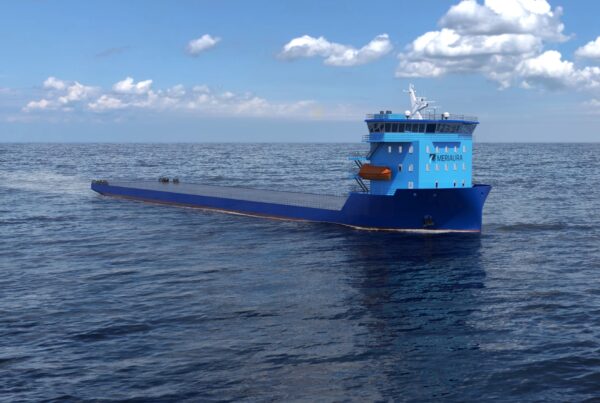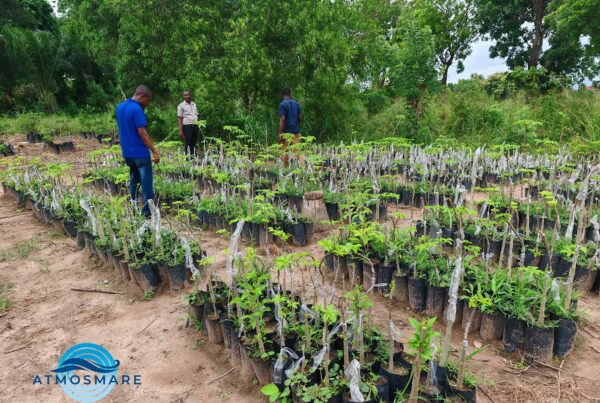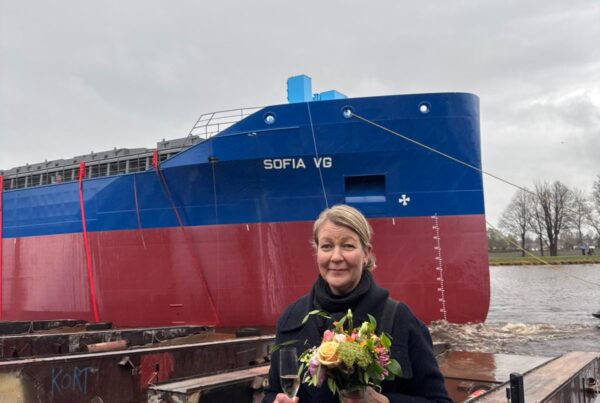As part of the merger with Savosolar Oyj Meriaura publishes a business review for the first time.
Key figures and significant events in July-September 2022
- Meriaura’s turnover in July-September was 20.4 million EUR (7-9/2021: EUR 13.6 million).
- Operating profit was 3.8 million EUR (2021 EUR 1.5 million).
- The net result in July-September was 3.6 million EUR (2021 EUR 1.5 million).
- The vessel Mirva VG was sold on 8 September 2022. The operating profit and net result in July-September include the profit on the sale of the vessel (0.9 million euros). Mirva VG continues in Meriaura’s fleet as a chartered vessel.
- 15.8. Meriaura bought Biolaite Ltd’s entire stock.
- 29.8. Meriaura’s owner company VG-Shipping Ltd signed a conditional share exchange agreement with Savosolar Oyj, by which it sells Meriaura’s businesses to Savosolar. After the merger, VG-Shipping will become the majority owner of Savosolar.
- 21.9. Meriaura, Wärtsilä and Green NortH2 Energy signed a Letter of Intent for the construction of a cargo vessel using green ammonia as fuel.
Key figures in January-September 2022
- Turnover in January-September was 53.7 million EUR (2021 EUR 39.2 million).
- Operating profit was 7.8 million EUR (2021 EUR 3.6 million).
- The net result in January-September was 7.1 million EUR (2021 EUR 3.5 million).
Business performance in July-September 2022
Meriaura’s third quarter was strong and the best summer quarter in the company’s history. Turnover increased by 50% compared to the comparison period and was €20.4 million (€13.6 million). The net result clearly improved and was €3.6 M (€1.5 M). The data are not directly comparable with the previous year due to the business deals that took place at the turn of 2021/2022. Meriaura took over the shipping business from the owner company VG-Shipping and the administrative business from Aura Mare Ltd. The effect of the transferred business operations on turnover this year has been approximately +4 %. The cost impact has been mainly structural, as previously leased vessels and purchased services were transferred to our own ownership. The figures in the review are unaudited.
Traditionally, the demand for sea transport is weaker in the third quarter than at the beginning of the year, which has been reflected in both freight and capacity utilization. Last summer too, a slight and momentary drop in demand was experienced during the holiday season, but thanks to successful advance sales and contract coverage, the ships were well employed, and profitability remained good.
Apart from the company’s main market area in Northern Europe, demand was also strong in other parts of continental Europe and the Mediterranean, which is why ship capacity was not transferred much from one area to another and the market remained balanced. As far as possible, most shipping companies try to schedule ship dockings during the summer season, and this affects the capacity. About 60 percent of the turnover in the third quarter was made up of the bulk business. More than 70% of the turnover of the bulk business was accumulated from cargoes of contract customers, which is the same level or slightly more than in the first half of the year. The spot market was momentarily quieter in July-August, but its effect on freight levels was nevertheless quite minor. In September, the market saw an increase in demand to the level before the summer.
The deck cargo ships of project logistics transports were also well employed throughout the quarter. During the review period, transports to a wind power project in Norway employed the vessels and harbor cranes were transported both to Iceland and the Mediterranean. The share of project logistics was slightly less than 30 percent of turnover. Since the war in Ukraine started by Russia, the price of marine fuel has been exceptionally high, and fuel purchases in euros for the quarter were more than double compared to the corresponding period of the previous year. The sharply increased fuel price significantly increased turnover compared to the comparison period, but due to the fuel clauses in the transport contracts, the effect on the result in terms of euros was minor.
As for the rest of the business, the third quarter was the main period for gypsum application of the Kipsi project. During the spreading season, gypsum was applied on 5,500 arable hectares, i.e., about 35 % less than a year earlier. Unlike previous years, due to the geopolitical situation, gypsum could not be transported by ships from Siilinjärvi along the Saimaa Canal but had to be transported by trucks either to interim storage or directly to farms. In July-August, the share of other business was about 10 percent of the company’s turnover.
Other significant events in July-September
Meriaura’s owner company VG-Shipping and Savosolar entered into a conditional agreement to sell Meriaura’s entire shareholding to Savosolar.
Meriaura sold the vessel Mirva VG to a long-term partner, Helmer Lundstöm Ab. In connection with the sale, Meriaura concluded a long-term time chartering contract for the ship, and the ship’s operation continued without interruption. As part of the arrangement, it was agreed that Meriaura would continue to man the ship, and thus the deal had no effect on crew employment.
Meriaura, GreenNortH2 Energy and Wärtsilä signed a letter of intent on the design and construction of a cargo ship using green ammonia as fuel.
Significant events after the end of the review period
The RoRo ship Polaris VG, which was agreed to be sold in January 2022, was handed over to its new owner in October after it returned from the planned long-term time charter in September.
More information:
CEO Bengt-Erik Rosin
Phone: +358 50 5574323
E-mail: beppe.rosin@meriaura.fi
Meriaura in brief
Meriaura is a Finnish maritime logistics company founded in 1986, transporting bulk and demanding special cargos. Dry cargo ships transport, among other things, products of bio and circular economy, agri-bulk and minerals for the needs of the customer industry, mainly in the Baltic Sea and North Sea. Deck cargo ships designed for special cargoes operate in Europe, and their most significant customer segments are renewable energy, port cranes and equipment, shipbuilding and off-shore industry. The company operates 14 vessels and offers crewing and ship management services also for external customers.
The company strives to operate as environmentally friendly as possible in all its operations and wants to be the leading forerunner in innovative and solution-oriented shipping and sea transport services.








